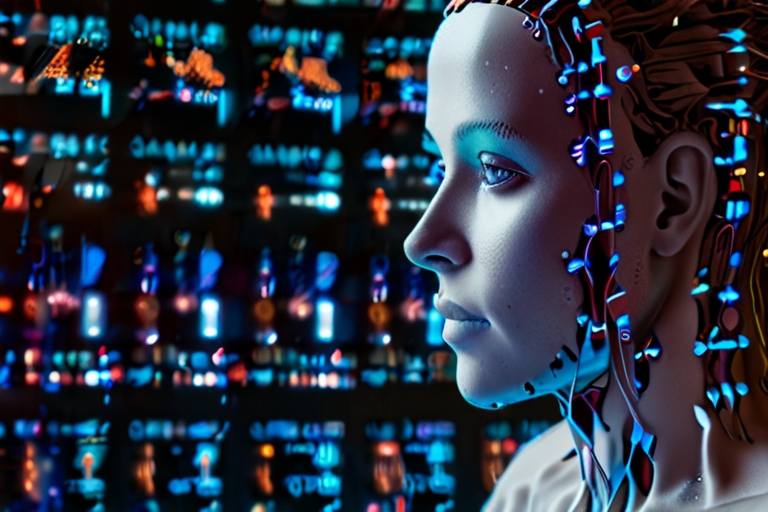Indeed, AI is one of the best symbols of machine intelligence and its ever-lasting journey to the top. This could probably lead to some sectors of economy facing pretty hard times of disruption and challenges. While AI yields to unlocking the unknown capacity for innovative and enhanced performance of businesses, it also would challenge the sectors that might lack the adaptability required to fit into the new landscape brought by the development.
- Conventional manufacturing companies that are dependent on manual work and have routine tasks may be stressful because of the acceleration in the field with AI-based automation. With AI-driven robots and automated machines gaining in capability and cost-effectiveness, industries such as textile, assembly lines or below-average skill manufacturing can become subject to technological unemployment and restructuring.
- Transportation This development may be attributable to the fact that self-driving vehicles and AI-centered logistic systems are emerging that can be instrumental in changing the jobs profile to areas such as trucking, delivery services and public transportation. AI brings along with it the prospect of enhanced safety and efficiency but its challenges include the possibility of job losses that are mostly experienced in the driving and operators’ areas of the industries.
- Customer Service AI which is a chatbot integration and virtual assistants are now displacing human customer service representatives in the industries like retail, banking, and telecom. AI can be applied to handle more customers at a shorter time, and to optimize support process; however, it’s also possible that AI advancement may replace some human jobs and may lead to poor customer service in industries which quite dependent on human interaction.
- Financial Sector Not even financial services sector is immune to disruptive influence of AI. There is AI-based robotic advising, algorithmic trading and intelligent risk assessment tools transforming the branch. Although AI may consolidate better decisions and broaden procedural or operational efficiency, the use of the technologies can also deepen income disparities and lead to regulatory challenge.
- AI will be a game-changer in improving healthcare while the scenario where AI is overwhelmingly adopted might worsen the situation of the already existent inequalities in health care provision as there is certain variation in this sphere. On the other hand, privacy and security are also issues that could be raised regarding adoption of AI in healthcare. Some examples of potential problems in this area include safety and ethics, as well as algorithmic bias.
Therefore, the advent of artificial intelligence will open the doors to a new generation of revolution and productivity, but such might also lead to the concerned disadvantaged economies with a whole range of problems. The identification of the possible results of Artificial Intelligence for the given sectors will assist in the scenario planning of all the stakeholders including policymakers, businesses, and their employees.

